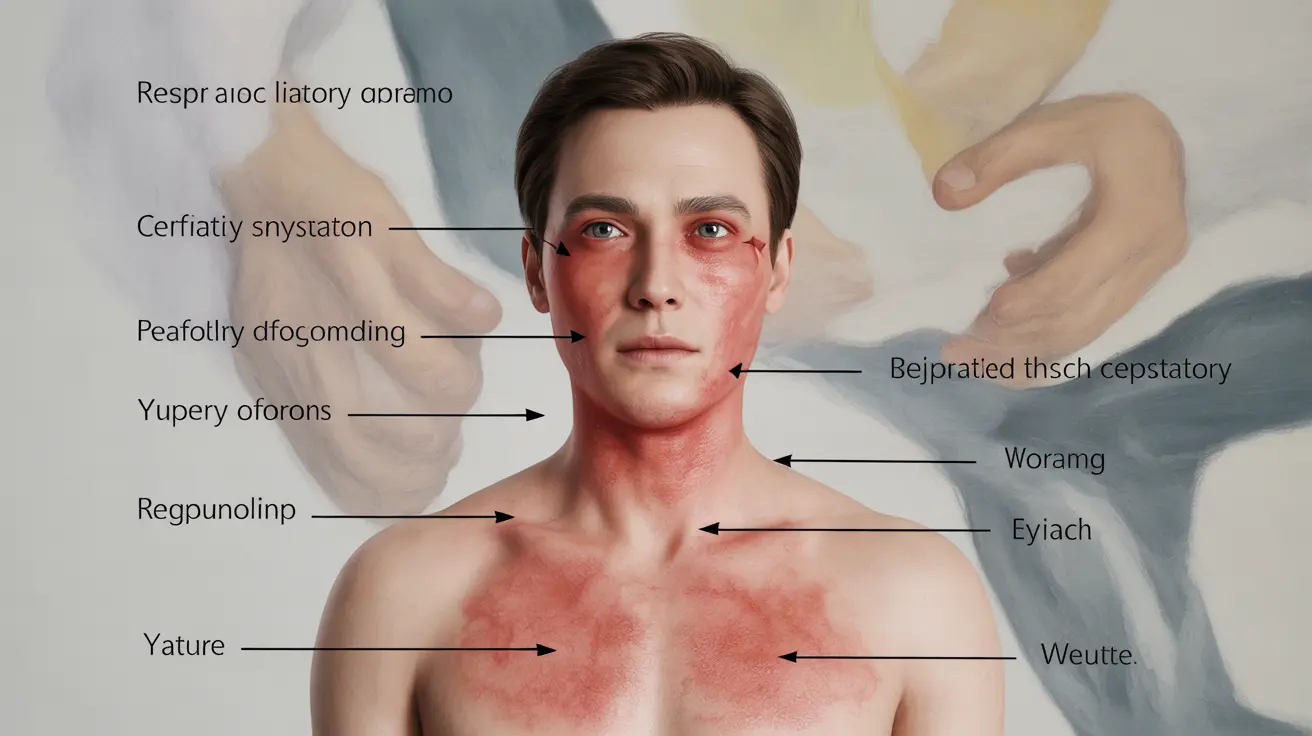Living with a perfume allergy can significantly impact your daily life, affecting everything from your workplace environment to social interactions. These allergic reactions occur when your immune system responds negatively to certain fragrance chemicals found in perfumes and other scented products. Understanding the symptoms, causes, and management strategies is crucial for maintaining your quality of life.
In this comprehensive guide, we'll explore everything you need to know about perfume allergies, from identifying symptoms to finding effective treatments and implementing preventive measures.
Understanding Perfume Allergy Symptoms
Recognizing the signs of a perfume allergy is the first step toward proper management. Common symptoms include:
- Skin reactions (redness, itching, rashes)
- Respiratory issues (coughing, wheezing, shortness of breath)
- Headaches and migraines
- Sneezing and nasal congestion
- Eye irritation and watering
- Dizziness or nausea
These symptoms typically appear shortly after exposure to fragranced products and can range from mild to severe, depending on individual sensitivity and the concentration of irritating chemicals.
Common Triggering Chemicals
Perfumes contain numerous synthetic and natural compounds that can trigger allergic reactions. The most common problematic ingredients include:
- Synthetic musks
- Phthalates
- Benzyl alcohol
- Limonene
- Linalool
- Geraniol
These chemicals aren't limited to perfumes alone - they're often found in various everyday products such as:
- Personal care products
- Cleaning supplies
- Air fresheners
- Laundry detergents
- Fabric softeners
- Scented candles
Diagnostic Process and Testing
If you suspect a perfume allergy, professional medical evaluation is essential for proper diagnosis. Allergists typically use several methods to confirm the condition:
Patch Testing
This common diagnostic tool involves applying small amounts of suspected allergens to your skin under patches, then monitoring for reactions over 48-72 hours.
Skin Prick Testing
While less common for fragrance allergies, this method may be used to test for immediate allergic responses to specific components.
Treatment Approaches
Managing a perfume allergy involves both immediate symptom relief and long-term prevention strategies. Current treatment options include:
Medical Treatments
- Antihistamines for immediate symptom relief
- Corticosteroid creams for skin reactions
- Nasal sprays for respiratory symptoms
- Emergency medications for severe reactions
Natural Remedies
Some people find relief through natural approaches such as:
- Cool compresses for skin reactions
- Saline nasal rinses
- Air purifiers with HEPA filters
- Essential oil-free moisturizers for skin barrier protection
Prevention Strategies
Preventing exposure to triggering fragrances is crucial. Key preventive measures include:
- Reading product labels carefully
- Using fragrance-free personal care products
- Communicating your needs to family, friends, and colleagues
- Creating fragrance-free zones in your home and workplace
- Carrying emergency medication if prescribed
- Using protective masks in high-risk environments
Frequently Asked Questions
What are the symptoms of a perfume allergy and how can I tell if I have one?
Common symptoms include skin rashes, respiratory problems, headaches, and eye irritation. If these symptoms consistently occur after exposure to fragranced products, consult an allergist for proper diagnosis.
Which chemicals in perfumes most commonly cause allergic reactions and where else are these fragrances found?
Common allergens include synthetic musks, phthalates, and various essential oil components. These chemicals are present in many everyday products including cleaning supplies, personal care items, and air fresheners.
How do doctors diagnose a perfume allergy and what tests are involved?
Doctors typically use patch testing as the primary diagnostic tool, applying small amounts of suspected allergens to the skin and monitoring for reactions over several days. They may also consider your medical history and symptom patterns.
What treatments help relieve symptoms of a perfume allergy, including over-the-counter and prescription options?
Treatment options include antihistamines, corticosteroid creams, and nasal sprays. For severe cases, doctors may prescribe stronger medications or emergency treatments.
What steps can I take to prevent perfume allergy reactions in daily life and reduce exposure?
Key prevention strategies include using fragrance-free products, creating fragrance-free zones, communicating your needs to others, and carefully reading product labels. Additionally, maintaining good ventilation and using air purifiers can help reduce exposure.




